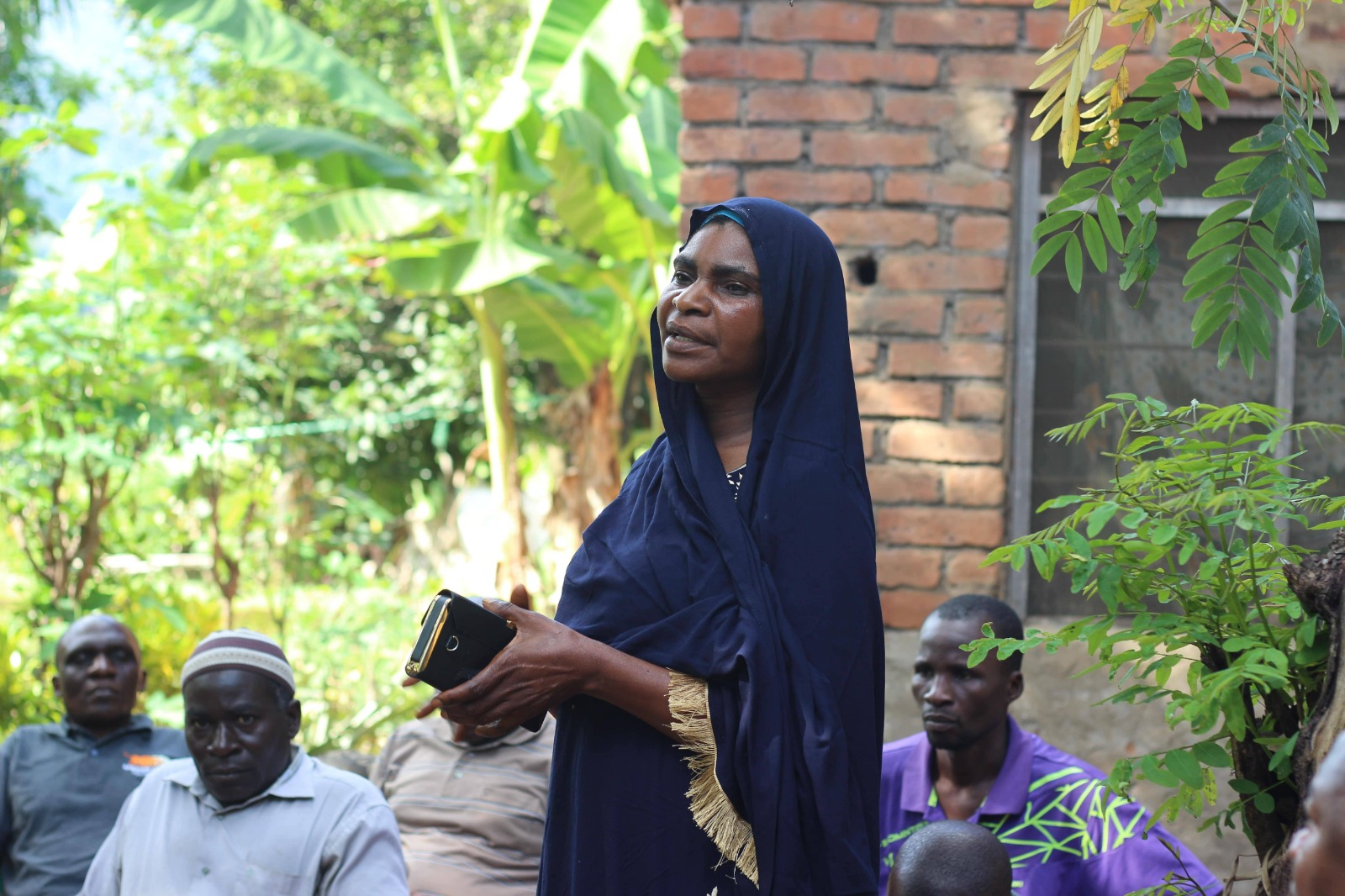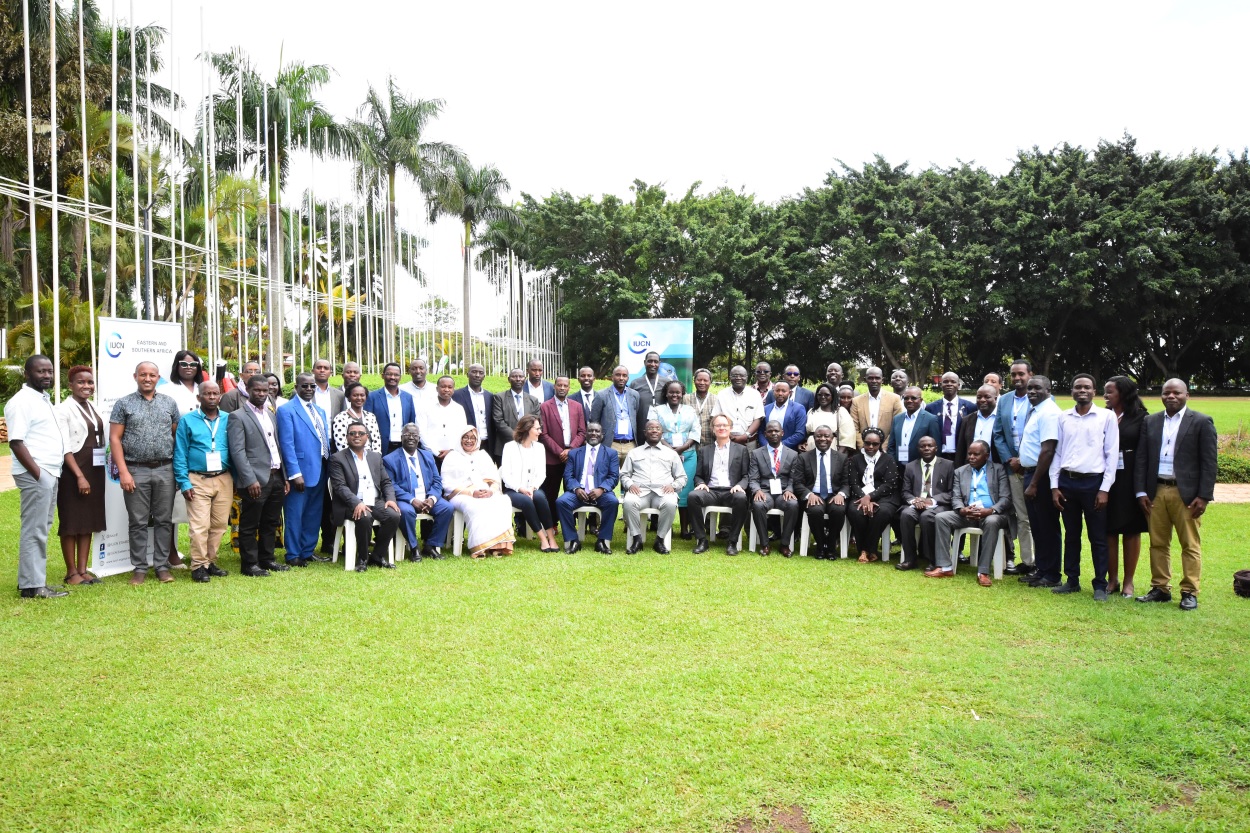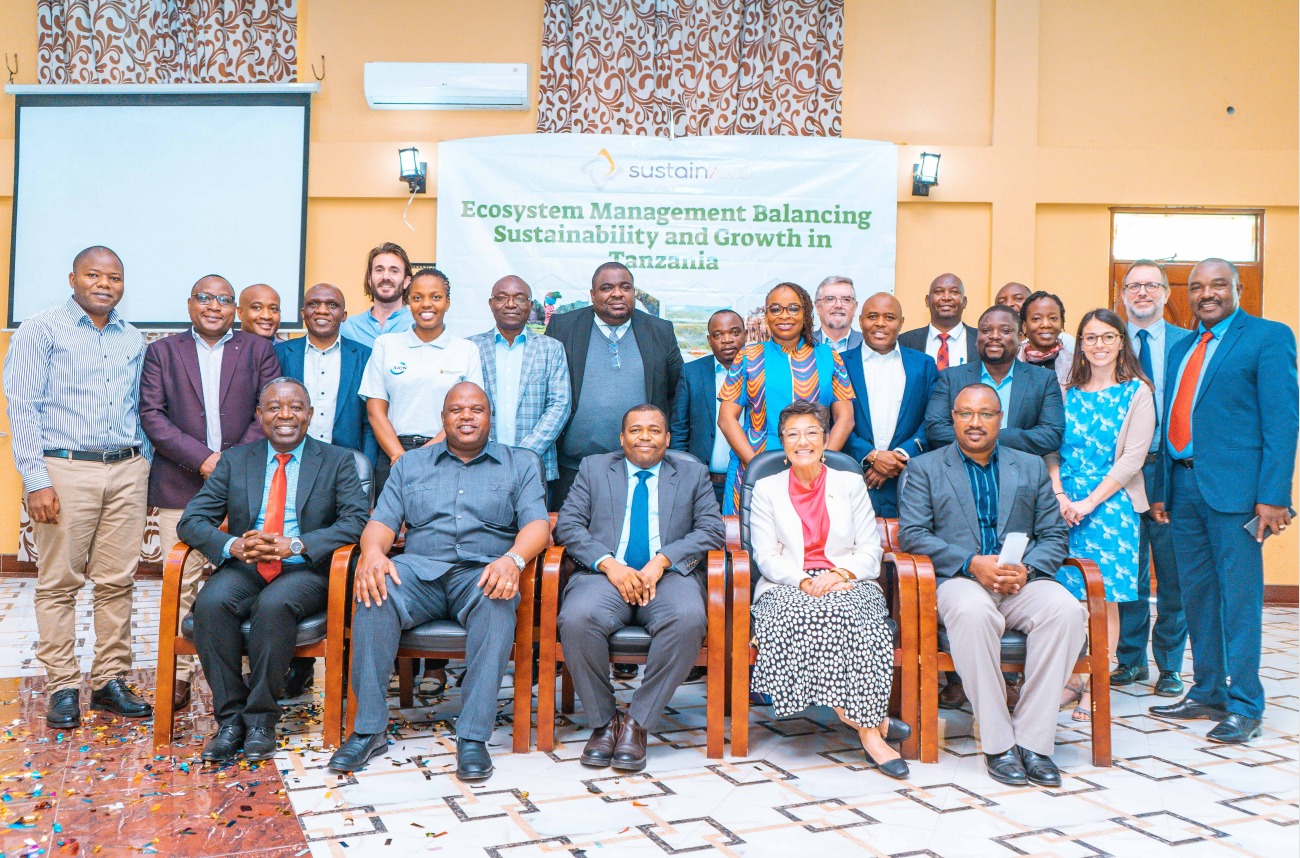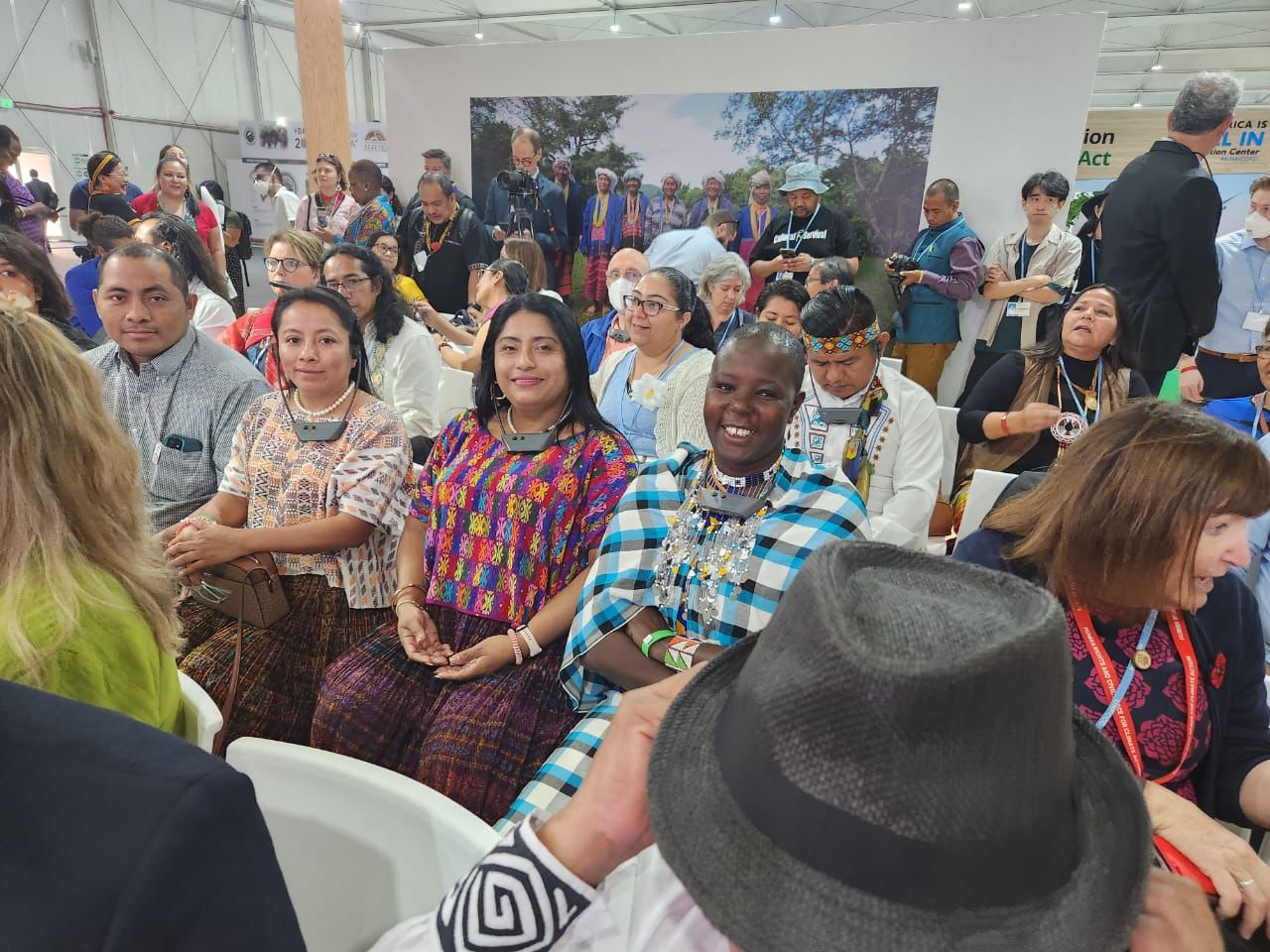Kilombero farmers push for new path to sustainable agriculture
In Tanzania's Kilombero district, a collaboration between small-scale farmers, IUCN, and other stakeholders is revolutionizing agriculture practices amid climate challenges. The SUSTAIN project, underpinned by IUCN's commitment and government support, aims to bolster the sector through sustainable practices, infrastructure enhancement, and market access, promising a greener, more productive future for the region's agriculture. By Emmanuel Minja, IUCN Tanzania Country Office
Kilombero is one of the prominent agricultural districts in the Morogoro region—the east-southern part of Tanzania. The district is home to the Mlimba and Ifakara Town Councils, whereby six wards in each council are working with IUCN and our partners to facilitate sustainable agriculture practices. Many farmers in the district are small-scale, owning just about one hectare or less of farmland, with rice, sugarcane, or cocoa as the main crops to support their livelihoods and ensure their food security.
As the impacts of climate change make the communities more vulnerable, many farmers are experiencing a decline in harvest, as notably testified by a farmer from Mkula ward who shared that her rice harvest has been declining from 30 tonnes a season to 10 tonnes in recent years, citing issues such as extreme weather events, soil quality deterioration and challenges to controlling pests disturbing her production volumes. Besides climate change, farmers in Mkula pinned other factors such as seed quality, soil quality management, post-harvest facilitations and market predictability as other factors heightening the
“The journey to creating value and solutions in the sector hinges on sustainability,” says Mr Mhagama, underscoring the need to implement nature-based solutions, connect value chain stakeholders and support farmers’ capacity building for sustainable agriculture practices. “This will stem a strong momentum to a greener future in the region,” the Programme Manager for in Tanzania added.
SUSTAIN aims to further strengthen the agriculture sector and bring in other value chain actors and promote appropriate scheme management, access to market, reduce human-wildlife conflicts and capitalise on the provision of extension services both by the public and private sectors to enhance sustainability.
During her visit to the SUSTAIN project site in Morogoro, Maria Ana Borges, IUCN’s Water and Landscape Programme Manager, reiterated her programme’s commitment to ensuring the communities are supported to access vital resources that can help to achieve food security, improve livelihood, and conserve nature. Maria Ana visited the Mkula Irrigation Scheme among other sites in Kilombero valley, where she had a chance to meet with scheme leaders, and farmers as well as visiting farms where the project is being implemented. The Mkula Irrigation Scheme dates back to 1978, now supporting over 700 smallholder farmers.
 A member from a farmers organisation of the Mkula Irrigation Scheme contributing to a meeting.
Photo: IUCN Tanzania/Emmanuel Minja
A member from a farmers organisation of the Mkula Irrigation Scheme contributing to a meeting.
Photo: IUCN Tanzania/Emmanuel Minja
This scheme was established to address a food shortage that was once experienced in the ward. A total of 254 hectares of land were set for the irrigation scheme but only 100 hectares are being irrigated, mainly because of inadequate irrigation infrastructure. The scheme is finishing a warehouse construction which is set to help with aggregation, proper grain handling and accessing structured markets. The farmers, who are being targeted to benefit from learning climate smart agriculture, farm management, pests control strategies, post-harvest management and proper village land use plan, are more equipped to make use of such investment and ready to chart new graphs for their harvesting records.
Commenting on the work being done by IUCN in the region, the Assistant Regional Administration Secretary for Morogoro commended IUCN’s efforts to enhance the agricultural value chain in the region and underscored how our collaboration is paramount in achieving key government goals in the sector.
The Tanzanian government is undertaking significant initiatives to improve the agriculture sector, including running projects targeting the youth players, women, mechanisation, and innovation in the sector as well as commercial partners and financial institutions for the sector. Morogoro, which already hosts various instrumental players in the agricultural value chain, the likes of Tanzania Agricultural Research Institute (TARI), Southern Agricultural Growth Corridor of Tanzania (SAGCOT), Kilombero Sugar Company, with the growing cooperation with private sector players and the government, stands a solid potential to stimulate the agriculture sector.



